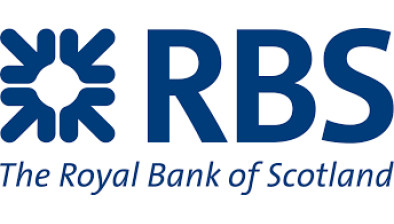RBS: Scottish private sector sees renewed downturn in October, thanks to fresh COVID-19 restrictions
The Scottish private sector saw a renewed downturn in October as fresh restrictions to tackle the COVID-19 outbreak came into force, according to the latest Royal Bank of Scotland PMI.

Malcolm Buchanan, chair, Scotland Board, RBS
The seasonally adjusted headline RBS Business Activity Index - a measure of combined manufacturing and service sector output - fell from 51.2 in September to below the 50.0 threshold at 43.2 in October.
The latest figure signalled a sharp contraction in private sector activity, albeit one less rapid than those in the spring. A marked drop in new business was central to the decline, while weak demand conditions, concerns surrounding the pandemic and Brexit weighed on firms’ confidence.
Adjusted for seasonal factors, the New Business Index registered below the crucial 50.0 mark again during October to signal a back-to-back reduction in inflows of new work across Scotland. Moreover, the rate of decline quickened noticeably on the month and was marked, albeit still not as severe as those seen in the spring. Panellists attributed the latest drop in new orders to weak client demand due to the COVID-19 pandemic.
Furthermore, Scotland registered the most severe reduction in new business across the 12 monitored UK areas during October.
The 12-month outlook for activity moderated for the third month in a row during October. Although Scottish firms remain confident that output will increase over the coming year, sentiment was the weakest since May. Concerns surrounding the longevity of the pandemic and timeliness the economic recovery – alongside Brexit uncertainty – weighed on sentiment. Where firms were optimistic, this hinged on hopes that the COVID-19 pandemic will be brought under control.
Scottish private sector firms signalled a further reduction in their staffing levels during October, extending the current sequence of decline to nine months. Moreover, the rate of job shedding was the sharpest since July, amid widespread reports of redundancies and layoffs due to lower inflows of new work.
Across the 12 monitored UK areas, only the West Midlands recorded a quicker reduction in employment than Scotland.
Latest data provided further evidence of weak capacity pressures in the Scottish private sector, as the level of outstanding business declined at the fastest pace since June. Companies noted that weak sales meant they were able to direct resources to unfinished orders.
The reduction was broad-based at the sector level. Service providers signalled a noticeably quicker reduction in outstanding business than their manufacturing counterparts.
Cost burdens facing Scottish private sector firms continued to rise during October, extending the current sequence of inflation to five months. Price hikes at suppliers, unfavourable exchange rates and greater wage costs were all attributed to the latest increase in input prices. The rate of cost inflation eased since September, but was still sharp.
An eighth successive monthly reduction in average charges levied by Scottish private sector firms was recorded in October. According to panellists, companies were discounting their selling prices amid weak client demand. That said, the rate of deflation was unchanged on the month and only fractional overall.
Sector data highlighted significant divergence, however, with a moderate reduction in prices charged for services outweighing a further increase in factory gate charges.
Malcolm Buchanan, chair, Scotland Board, RBS, said: “Renewed lockdown restrictions seem to have staved off the recovery in the Scottish private sector during October. Output declined sharply amid a marked contraction in the level of new business, although the falls were still less sharp than in the spring.
“Unsurprisingly, the service sector bore the brunt of the impact, registering a rapid drop in activity that outweighed a further uptick in manufacturing output, and a much more marked reduction in order book volumes than goods producers.
“Concerns surrounding the pandemic also weighed on confidence, with the level of positive sentiment the lowest for five months. All in all, the data make it clear that there is an uncertain and bumpy road ahead.”






